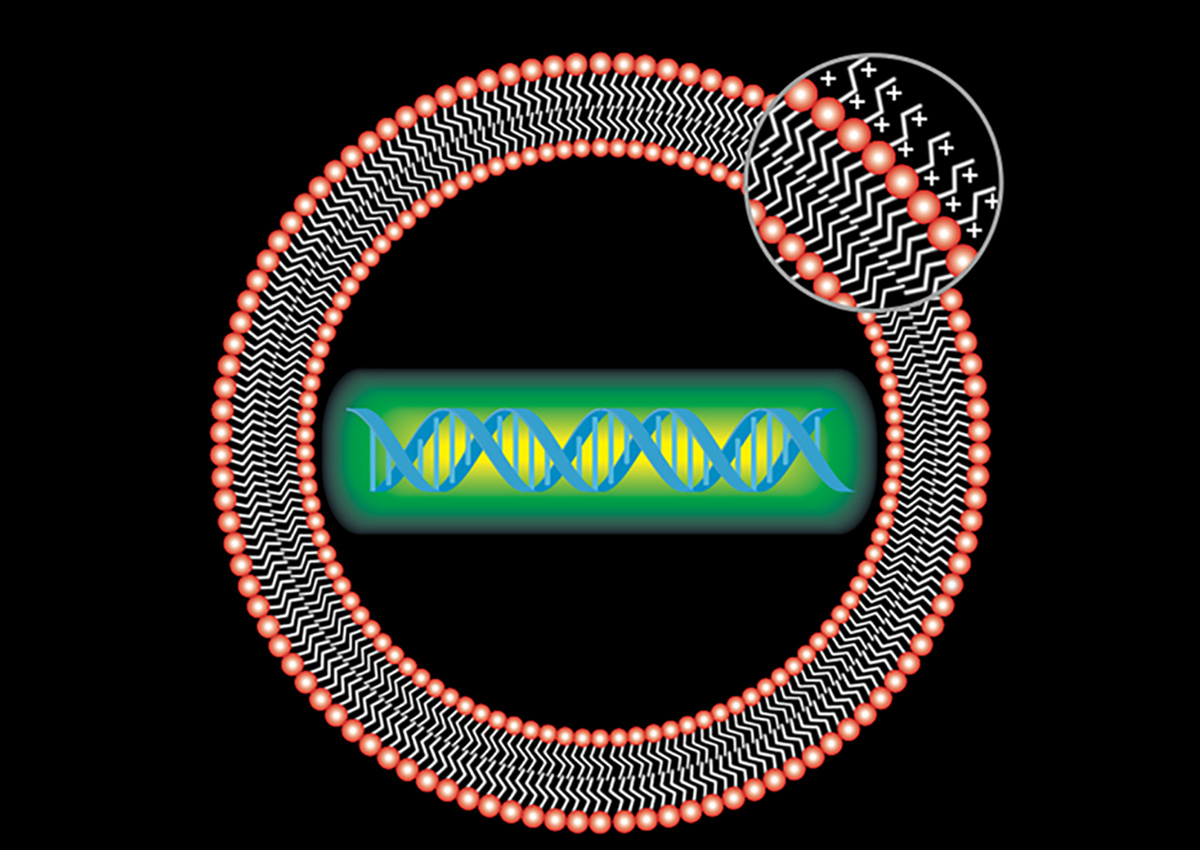
CRISPR Technique 90% Effective in Reducing SARS-CoV-2 Coronavirus
June 10, 2020| |
Scientists from Stanford University and the Molecular Foundry at the Department of Energy's Lawrence Berkeley National Laboratory (Berkeley Lab) are working to develop a gene-targeting, antiviral agent against COVID-19. Last year, Stanford University Assistant Professor Stanley Qi began working on a technique called PAC-MAN - or Prophylactic Antiviral CRISPR in human cells - that uses the gene editing tool CRISPR to fight influenza. When news of COVID-19 pandemic emerged, Qi and his team thought to try PAC-MAN technology to fight the disease.
PAC-MAN is composed of an enzyme - in this case, the virus-killing enzyme Cas13 - and a strand of guide RNA, which commands Cas13 to destroy specific nucleotide sequences in the coronavirus's genome. By scrambling the virus's genetic code, PAC-MAN could neutralize the coronavirus and stop it from replicating inside cells. However, Qi said that the key challenge to translating PAC-MAN from a molecular tool into an anti-COVID-19 therapy is finding an effective way to deliver it into lung cells.
Researchers at the Molecular Foundry led by Michael Connolly are working on synthetic molecules called lipitoids, a synthetic peptide mimic known as peptoid that are effective in the delivery of DNA and RNA to a wide variety of cell lines. Lipitoids are non-toxic to the body and can deliver nucleotides by encapsulating them in tiny nanoparticles the size of a virus. The Lipitoid 1 tested by the Stanford team in late April performed well. When packaged with coronavirus-targeting PAC-MAN, the system reduced the amount of synthetic SARS-CoV-2 in solution by more than 90%. The team next plans to test the system against a live SARS-CoV-2 virus.
For more details, read the article in Berkeley Lab News Center.
| |
You might also like:
- Scientists Find Potential Targets for COVID-19 Vaccine
- COVID-19 Treatment Efforts Using Plant Technologies
- Researchers Discover Antibody that Blocks SARS-CoV-2 Infection in Cells
Biotech Updates is a weekly newsletter of ISAAA, a not-for-profit organization. It is distributed for free to over 22,000 subscribers worldwide to inform them about the key developments in biosciences, especially in biotechnology. Your support will help us in our mission to feed the world with knowledge. You can help by donating as little as $10.
-
See more articles:
-
News from Around the World
- Study Highlights The Role of Communication in Novel Food Acceptance
- COVID-19 Driving Up Hunger in Food Crisis Hotspots, Urgent Action Necessary
- Top 5 Biotech Crops Occupy 99% of Global Biotech Crop Area
- Experts Urge States to Embrace Genome Editing in Addressing Key Challenges in Health and Agriculture
- International Research Team Document First Use of Maize in Mesoamerica
- Farmers in Paraguay Achieve Yield Increases through Agri-biotech
-
Plant
- USDA Classifies Gene-Edited Soybean As Non-Regulated
- Experts Use Viruses for Transgene-free Gene Editing in Plants
-
Health
- CRISPR Technique 90% Effective in Reducing SARS-CoV-2 Coronavirus
- Study Shows COVID-19 Risk Might be Linked to Blood Type
-
Read the latest: - Biotech Updates (November 12, 2025)
- Gene Editing Supplement (October 29, 2025)
- Gene Drive Supplement (February 22, 2023)
-
Subscribe to BU: - Share
- Tweet

